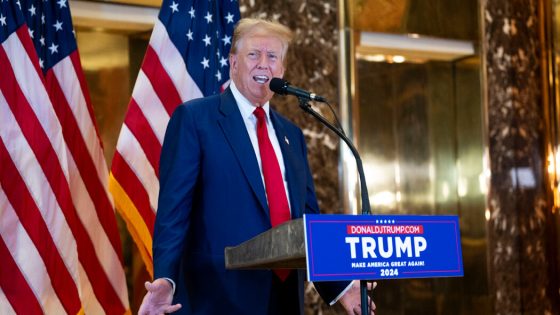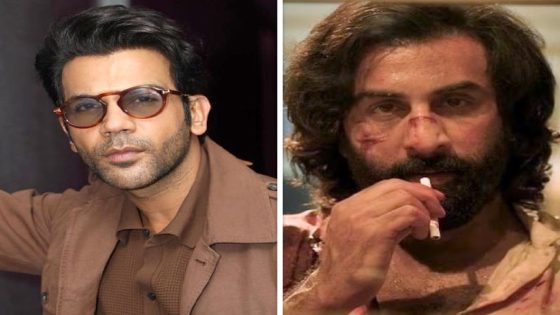When former President Donald J. Trump was convicted on all charges at his criminal trial in Manhattan this week, it unleashed a torrent of outrage from the right savaging New York’s legal system as better befitting a banana republic.
The judge, it was claimed, was biased. The jury, it was argued, was full of liberals. And the entire endeavor of bringing nearly three dozen felony counts against Mr. Trump as he was campaigning for the White House, it was said, was little more than an exercise in raw political power ginned up by President Biden.
In reality, the saga that began in March 2023 when Mr. Trump was indicted by a local grand jury and ended on Thursday with 34 guilty verdicts from a panel of everyday New Yorkers was an example of the criminal justice system trying to work as normally as it could under extraordinary circumstances.
At each turn in the proceeding, Mr. Trump had the chance, like any other criminal defendant, to represent his interests — and his lawyers often availed themselves of the opportunity to the fullest extent of the law. And the process is far from over: The former president has vowed to file an appeal, meaning he will have another chance or two to vindicate himself.
There is little doubt that much about the trial — in which Mr. Trump was found to have falsified business records to cover up a sex scandal that threatened to derail his 2016 presidential campaign — was unusual.
Prosecutors structured their case in a complicated way, arguing that the relatively routine fraud allegations were undertaken in the service of influencing Mr. Trump’s first run for the White House. And they presented their case to the jury at a time when polls show him with an early lead in a presidential campaign that is only exacerbating polarizing differences across the country.
Making matters more complex, the indictment was filed by a Democratic district attorney, Alvin L. Bragg, in a heavily Democratic city after both federal prosecutors and Mr. Bragg’s own predecessor chose not to bring charges.
But the accusations by Mr. Trump and his supporters that he was railroaded in contravention of the rule of law were belied by the way in which the six-week trial and the months of hearings that preceded it played out. All of that suggested something quite different: how a wealthy and powerful man, with the ability to mobilize public opinion and an expensive team of experienced lawyers, used every means at his disposal to defend himself.
Even in the final days before the trial was set to start, Mr. Trump’s legal team filed motion after motion in an effort to delay or derail the proceeding. And when Justice Juan M. Merchan, who oversaw the case, denied its requests, the lawyers, following the normal course of action, challenged his decisions in front of an appeals court.
The lawyers took part in a full week of jury selection, questioning and striking potential members of the panel they felt could not be fair. They cross-examined witnesses, often succeeding in scoring points. And, of course, they mounted a defense case, deciding in the end not to put Mr. Trump on the stand.
Nonetheless, the proceedings were derided as a perversion of the justice system by public figures like Senator Marco Rubio, Republican of Florida, who wrote the whole thing off as “a political show trial.”
Critics like Mr. Rubio failed to mention that it was Mr. Trump, not members of the prosecution, who engaged almost daily in the public spectacle of impugning the integrity of the trial in remarks to reporters gathered outside the courtroom.
Often, Mr. Trump was accompanied by an entourage of powerful surrogates — including, at one point, Speaker Mike Johnson — some of whom explicitly said they had shown up to get around the dictates of a gag order that prohibited the former president from going after witnesses for the state and other participants in the case.
For years, Mr. Trump has complained that the criminal justice system has been weaponized against him. And his grievances only intensified after the indictment in Manhattan was filed last spring, and was quickly followed by others in Florida, Washington and Georgia.
But until his conviction this week, Mr. Trump had amassed an impressive record of wielding the legal system to his advantage.
Over the past 10 months or so, he and his lawyers have used an array of tactics to bog down his three other criminal cases with various forms of delay. In doing so, they have greatly increased the chances that juries will not hear evidence about his alleged attempts to remove classified documents from the White House or overturn the results of the last election before voters decide whether to return him to power.
In Washington, for instance, Mr. Trump has used an expansive claim of executive immunity to effectively bring a halt to his election interference prosecution, which has been frozen in place for the past six months as courts consider his arguments. In the next month or so, the Supreme Court will finally decide the matter in a ruling that will help determine when — or even if — the case will go to trial.
In Florida, his lawyers have used a different strategy to slow the process down, filing a flurry of motions seeking to have the classified documents charges dismissed. They have received a serious hearing in nearly all of their efforts from Judge Aileen M. Cannon, whose willingness to listen patiently to even the flimsiest of their arguments has all but ensured that there will be no trial before November.
And in Georgia, Mr. Trump has exploited the personal peccadilloes of Fani T. Willis, the district attorney who indicted him on charges of seeking to reverse the election results of that state, to delay the proceedings for months. A state appeals court is now considering whether to disqualify Ms. Willis from the case for a romantic relationship she had with one of her top deputies.
In Manhattan, much of Mr. Trump’s ire has been focused on Justice Merchan, whom he and his supporters attacked throughout and after the trial. Often, their complaints have revolved around work the judge’s daughter has done as a Democratic political consultant.
But far from being ignored, those claims were raised not once, but twice, by Mr. Trump’s lawyers in separate motions to remove Justice Merchan from the case. And in rejecting their requests, the judge cited more than his own opinions, pointing to a ruling by a state ethics committee that determined his impartiality could not be reasonably questioned based on his daughter’s interests.
Mr. Trump and his supporters have also attacked Justice Merchan for drafting instructions that allowed jurors in the case to choose among three different legal theories that elevated the business records charges, which are typically misdemeanors, to felonies. The criticism was widely — and falsely — described as the judge permitting the jury to return a guilty verdict without a unanimous decision. And it did not take note of the fact that Mr. Trump’s lawyers had ample opportunity to contest the instructions before they were given.
During a rambling speech at Trump Tower on Friday, Mr. Trump continued to assail the trial as “rigged,” repeating a litany of falsehoods and misleading claims about the proceeding. He also persisted in attacking Justice Merchan, calling him “a devil.”
But even though his broadsides were not supported by the facts, Mr. Trump succeeded in turning his assault on the case and those involved in it into a campaign issue. While Mr. Biden has often been averse to addressing his adversary’s legal woes, he felt compelled on Friday to push back against Mr. Trump.
“Our justice system has endured for nearly 250 years, and it literally is the cornerstone of America,” Mr. Biden said at the White House. “The justice system should be respected.”
Source Agencies


